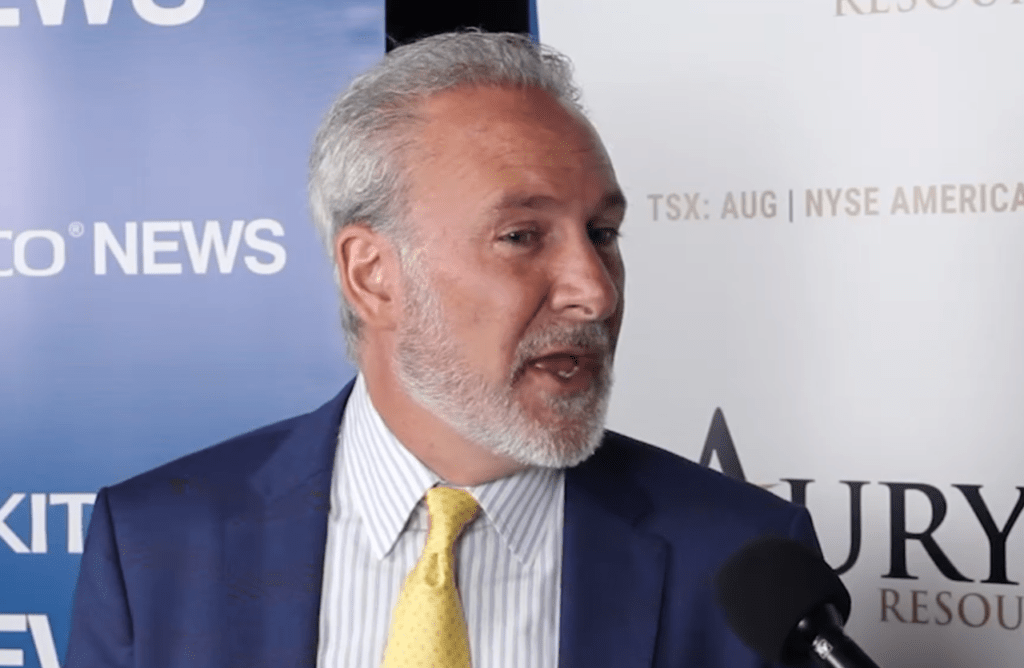Peter Schiff Admits Bitcoin Reaching $50K but Remains Skeptical
Bitcoin has achieved a new milestone, surpassing the $50,000 mark, thanks to increasing institutional support and adoption. Peter Schiff, an outspoken economist, gold proponent, and vocal Bitcoin critic, has admitted he was wrong about Bitcoin not reaching this level. Despite his acknowledgment, Schiff remains far from endorsing Bitcoin, reiterating his belief that the cryptocurrency is the “biggest bubble of all.”
Bitcoin’s Journey to $50,000
1. Institutional Backing Drives Growth
- Bitcoin’s price surge to $50,000 has been bolstered by major institutional players, including:
- MicroStrategy: Planning to use $600 million from private offerings to purchase additional Bitcoin.
- Tesla: Announcing a $1.5 billion Bitcoin investment, with CEO Elon Musk voicing strong support for cryptocurrency.
2. Milestones in Cryptocurrency Adoption
- Canada’s regulators approved their second Bitcoin ETF, launched by Evolve and trading on the Toronto Stock Exchange (TSX).
- The growing popularity of exchange-traded funds highlights the rising institutional and retail interest in Bitcoin.
Peter Schiff’s Response to Bitcoin’s Rise
1. Admitting a Misjudgment
- Schiff acknowledged that he was wrong about Bitcoin not hitting $50,000, a significant shift from his earlier predictions.
2. Continued Skepticism
- Despite his admission, Schiff remains unconvinced of Bitcoin’s long-term value, calling it the “giant bubble for all.”
- He expressed doubts about Bitcoin’s sustainability, arguing that its rise is driven by speculation rather than intrinsic value.
3. Predictions of $100,000
- Schiff admitted that Bitcoin might eventually reach $100,000, though he frames this as a further extension of the speculative bubble.
Market Bulls vs. Skeptics
1. Optimism from Market Bulls
- Bitcoin enthusiasts, including institutional investors and retail traders, see $50K as a stepping stone to higher valuations.
- Many market analysts predict that Bitcoin’s price will continue its upward trajectory as adoption grows.
2. Skeptics Hold Ground
- Peter Schiff’s skepticism is shared by other traditional investors, including:
- Mark Cuban, who compared the cryptocurrency market to the internet stock bubble of the 1990s.
- Cuban acknowledged the high volatility of cryptocurrencies but believes Bitcoin and Ethereum will survive any potential bubble burst.
Factors Supporting Bitcoin’s Continued Growth
1. Institutional Adoption
- Companies like MicroStrategy and Tesla have set a precedent for corporate investment in Bitcoin.
- Elon Musk’s influence has been instrumental in driving interest and confidence in cryptocurrency.
2. Regulatory Developments
- The approval of Bitcoin ETFs in Canada provides an accessible entry point for traditional investors, further legitimizing the market.
3. Public Perception and Utility
- Bitcoin is increasingly viewed as a hedge against inflation and an alternative to traditional assets like gold.
Conclusion
While Peter Schiff remains skeptical of Bitcoin despite its milestone achievement, the broader market sentiment leans bullish. With growing institutional adoption and supportive regulatory developments, Bitcoin continues to gain traction as a legitimate asset class.
The debate between skeptics like Schiff and supporters of Bitcoin highlights the evolving perceptions of cryptocurrency in the global financial landscape. Whether Bitcoin is a bubble or the future of money, its impact is undeniable as it reshapes how individuals and institutions approach investments.
To learn more about the innovative startups shaping the future of the crypto industry, explore our article on latest news, where we delve into the most promising ventures and their potential to disrupt traditional industries.
Disclaimer: The information provided is not trading advice, Bitcoinworld.co.in holds no liability for any investments made based on the information provided on this page. We strongly recommend independent research and/or consultation with a qualified professional before making any investment decisions.




